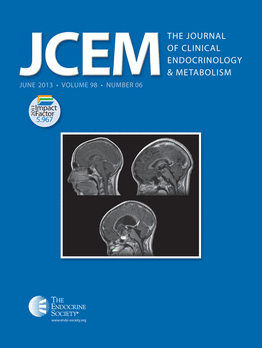
Metabolic Disorders
Use of growth hormone therapy for osteoporosis in postmenopausal women: 10 year follow-up
This report has been verified
by one or more authors of the
original publication.
J Clin Endocrinol Metab. 2015 Sep;100(9):3251-9
Eighty postmenopausal women with osteoporosis were randomized to one of three treatment groups: one received 2.5 units of growth hormone per day for 3 years; one received 1 unit of growth hormone per day for 3 years; one received placebo every day for 18 months. The double-blind phase of the trial lasted up to 18 months. The purpose of the study was to evaluate the effects of growth hormone therapy on bone quality and fracture risk 10 years after the start of treatment (7 years after treatment completion). Results demonstrated increases in bone mineral density and bone mineral content in both the 2.5 and 1.0U/d growth hormone groups relative to baseline, as well as placebo, up to the 4-year assessment period (ie. 1 year after treatment cessation). Thereafter, the effect of growth hormone therapy decreased in both treatment groups and continued to decline to approximately pre-treatment levels at the 10-year follow-up. There did not appear to be a marked difference in fracture rate between the 2.5 and 1.0U/d GH groups (10 and 15 fractures; respectively) and the placebo group (9 fractures) over the duration of the 10-year study duration.
Unlock the full article
Get unlimited access to OrthoEvidence with a free trial
Start TrialCritical appraisals of the latest, high-impact randomized controlled trials and systematic reviews in orthopaedics
Access to OrthoEvidence podcast content, including collaborations with the Journal of Bone and Joint Surgery, interviews with internationally recognized surgeons, and roundtable discussions on orthopaedic news and topics
Subscription to The Pulse, a twice-weekly evidence-based newsletter designed to help you make better clinical decisions
Exclusive access to original content articles, including in-house systematic reviews, and articles on health research methods and hot orthopaedic topics
Or continue reading this full article
Register Now

Subscribe to "The Pulse"
Evidence-Based Orthopaedics direct to your inbox.





































